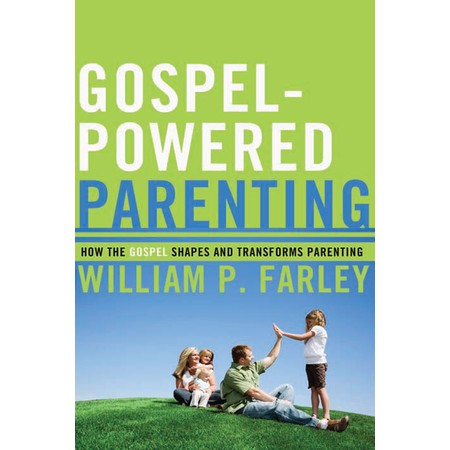A Holy Father
Chapter three taught us that God blesses parents who fear the Lord and that the fear of the Lord is taught best not in the Old Testament but through the Gospel in the New Testament. This chapter fleshes out what is meant by that statement.
In an effort to be brief and summarize Farley's arguments, here are some bullet points of what he argues in this chapter:
- How we parent is not about techniques, but it is a "by-product" of how we think - specifically, how we think about God.
- There are two important fundamentals in how we think about God, both are illustrated best in the cross: his holiness and his grace. (This chapter will explore the first- God is Holy.)
- Holiness is God's fundamental attribute. It means he is fundamentally different than us in his perfection, and purity. It is difficult to understand how completely "other" he is.
- The cross illustrates how completely God separates himself from sin and sinners. "Here is the stunning truth: Such is the holiness of the Father that when his Son bore our sin and transgressions, God separated himself from him. (Matt. 27:46)" (pg. 75)
- Part of God's holiness is also his justice. "He is just, and his justice is holy. It is not like this world's justice. It cannot be suspended, compromised, or ignored. It must be executed with perfection. It must be satisfied. In other words, it woud be sin for God to compromise justice." (pg. 76-77)
- Because God is holy and God is just, we next need to understand his holy wrath. Farley quotes Jerry Bridges, [His wrath] "is the tangible expression of His inflexible determination to punish it [sin]. We might say God's wrath is His justice in action, rendering to everyone his just due, which because of our sin is always judgement."
- Another great quote: "The real question is not: 'How can God be loving and wrathful at the same time?' Rather, ther real question is: 'How could God be good - infinitely good in the way the Bible describes him-and not feel intense anger at sin and evil?'" (pg. 79)
- God poured out his wrath on his son, who bore our sins, at the cross. Which leads us to this conclusion: "There are only two types of people. There are those who put their faith in Jesus and let him bear God's wrath in their place. And there are those who try to earn salvation on their own terms. They will bear this wrath themselves, in hell, for eternity." (pg. 81)
Farley then draws 5 conclusions for parents:
- The cross and it's implications teaches us to fear God.
- The cross teaches parents to pursue their own holiness. It causes us to take our sin seriously.
- The cross gives us an eternal perspective. We will one day stand before this holy God, either on our own merits, or on the merits of Christ.
- The cross teaches us not to presume upon grace, but to take decisive action.
- The cross makes us needy - we cannot earn salvation, we must find it in Christ alone.
My thoughts
For me, I would say that it is very difficult to understand the depth of God's holiness. I too often think that he is like me. I get angry at sin, but my anger is biased to certain kinds of sin. It is disproportionate in it's response. It is blind to my own failings, but harsh on others. I see sins primarily as actions and not as attitudes. If I (or my children) can manage our actions to socially acceptable behaviors, I feel like we are much closer to holiness - we are doing pretty well. This is not a correct definition of holiness. God's holiness helps me to understand that God looks upon the heart, that even the cleanest, most moral individuals still required the sacrifice of his son to atone for their sin! I want my kids to understand just how bad sin is. Not just lying and stealing and disobeying, but the heart attitudes that cause us to prefer a host of other things to God, that cause us to rebel against his good authority in our lives. These things are in ALL of us, no matter how clean we look on the outside.
The most sobering quote in this chapter for me was this one:
In their book How People Change, Lane and Tripp insightfully write, "One of the reasons teenagers are not excited by the gospel is that they do not think they need it. Many parents have successfully raised self-righteous little Pharisees. When they look at themselves, they do not see a sinner in desperate need, so they are not grateful for a Savior." Children raised by diligent parents immersed in the holiness of God are not apt to share this problem. (pg. 83)
What quote stood out to you the most?
In what practical ways should the knowledge of God's holiness motivate Christians to parent their children differently?
If you are reading along with us, I would love to hear your thoughts on any of the chapters you have read so far. You can comment here, or on the posts from any of the previous chapters. You can find all of the posts on the new Book Club page.
Linking up today with: Faithful Parenting Fridays


No comments:
Post a Comment